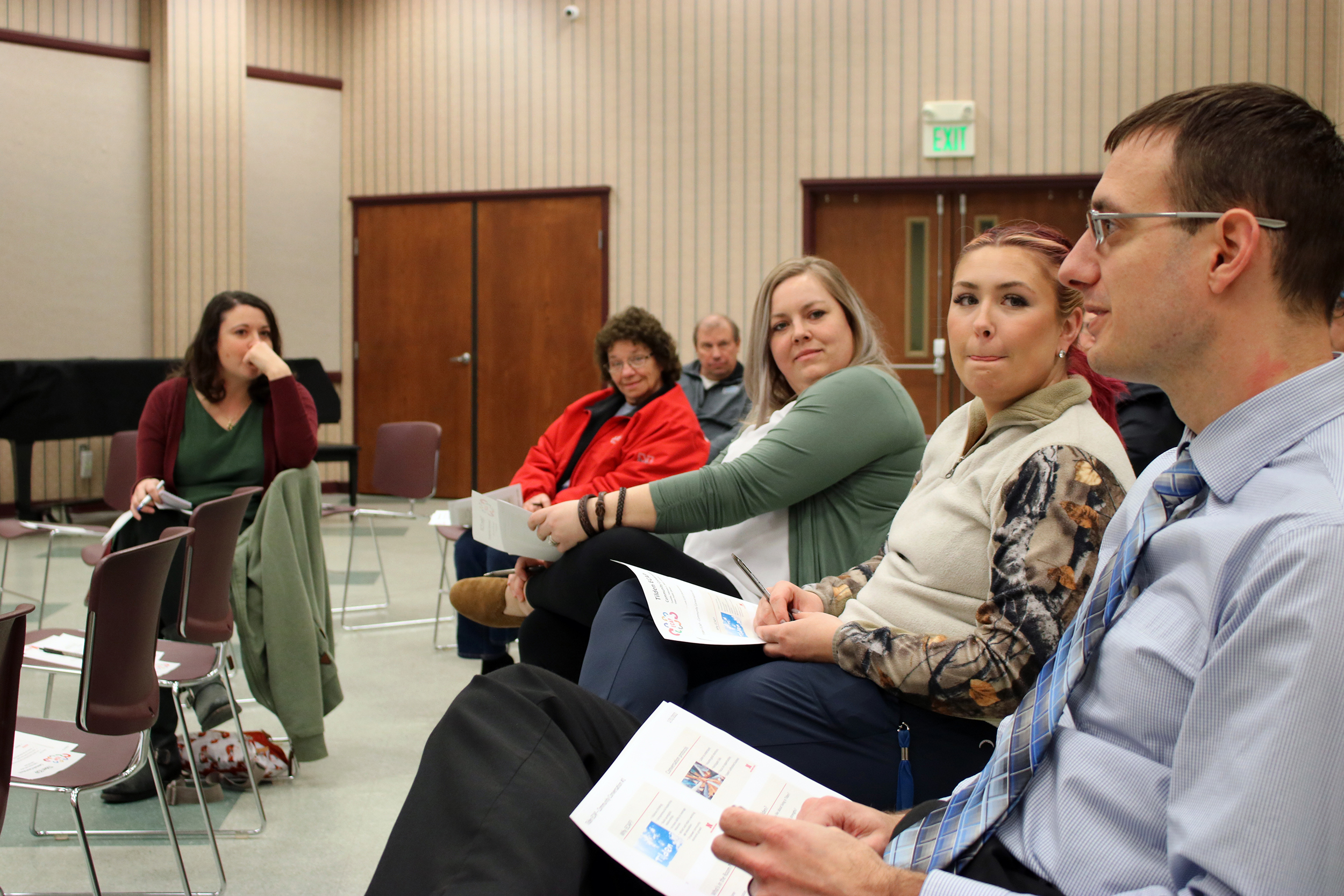
Tilden residents enter the city library, bundled up against the cold. They greet each other between sips from their thermoses, then take a seat. Jordan Grummert-Rasmussen and Amanda Kowalewski, extension educators for Rural Prosperity Nebraska, welcome the attendees and begin the first meeting of the Entrepreneurial Communities Activation Process program.
Through a series of surveys, townhall meetings, and the creation and execution of locally designed projects, the ECAP program helps rural Nebraska communities revitalize their towns through entrepreneurship and business development.
“ECAP provides communities the space to reflect on their successes and assets, and in turn learn from and leverage these capacities to improve the quality of life for residents,” Grummert-Rasmussen said.
ECAP has two aims: to strengthen already existing assets and introduce new vitality to communities. The aims are defined by community members, who lead the discussions, set goals and complete projects.
Marilyn Schlake, co-lead for Rural Prosperity Nebraska’s Community Economic Development team, which heads ECAP, emphasizes the focus on each community’s individuality.
“It takes about two to three months to do this process,” she said. “Then (residents) have a plan to start moving forward. But the community decides all that.”
Molly Navratil, a Tilden City Council member, attended the inaugural ECAP meeting with hopes that moving forward didn’t mean abandoning the community’s culture.
“I hope that Tilden keeps its strong, awesome, positive identity,” she said, “but is able to grow in the things that it needs to leap into the future.”
Tilden is taking its first steps in the program, but communities across the state have already seen major improvements by participating.
In 2018, Plainview began the process with a communitywide survey that asked questions about housing, child care, food access, and community culture and vision. Within three years, it welcomed 19 new businesses and created 75 new jobs, remodeled its city park, received multiple federal grants and created a $200,000 revolving loan fund.
“Our main street is full. I have no buildings left,” said Susan Norris, director of Pierce County Economic Development. “ECAP focuses on the positive. It’s such an organic process.”
Plainview is only one example. Auburn is working on downtown revitalization efforts. Osmond is upgrading communitywide broadband service. Hadar created a disc golf course in its city park and is developing a 93-house subdivision.
While Tilden was beginning the ECAP process, just up the road, Atkinson residents were holding the “graduation” session of their year-long program, and they had much to celebrate. Participants reminisced about the progress their community has made, from expanding child care options to updating the community welcome packet — which is delivered to new residents in person — to creating a service-based website, which will launch in the coming months.
“Atkinson has benefitted from the ECAP program because I feel like we were comfortable, and this program came in and challenged us,” said Pam Winer, general property manager of the Sandhills Hotel and president of Atkinson’s Chamber of Commerce.
The crowning event was a career fair for high school students to explore opportunities in Atkinson, which resulted in many students earning employment and internships at local businesses.
Some people participated in the program for personal reasons, like Patti Skrlda, who promised her deceased father she would help “keep Atkinson alive,” she said.
Others joined the team from a professional standpoint, like Sheryl Hiatt, who works for the Nebraska Department of Economic Development.
“The ECAP process really lays the groundwork for economic development and community development,” she said. “My thing tonight is, I really want to know what’s next.”
A lot falls under that umbrella of “community development,” whether it’s a new restaurant, better child care centers, expanded housing or a revitalized main street. Either way, the spirit of ECAP is in its name — it’s a process.
From completing the first survey to cutting the ribbon on opening day, locals continually strengthen the economic climate in their communities long after the program is “finished.” Atkinson understood this concept, as the final slide of their celebratory presentation asked, “Ideas for future projects?”








